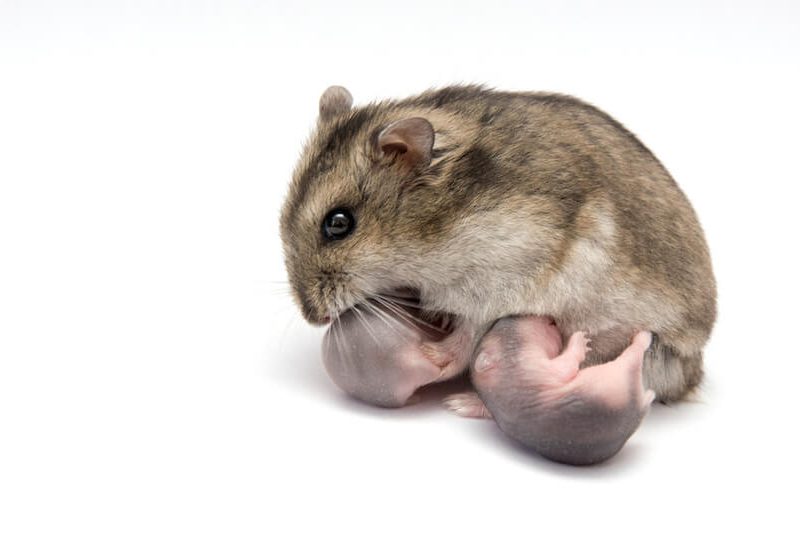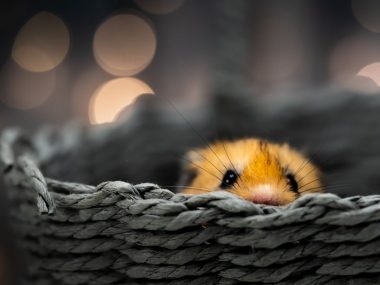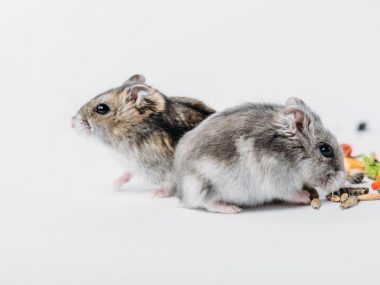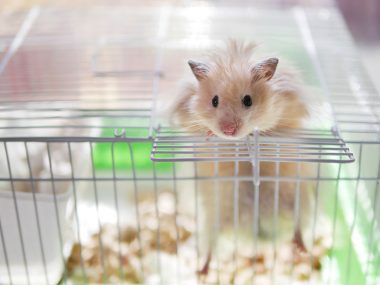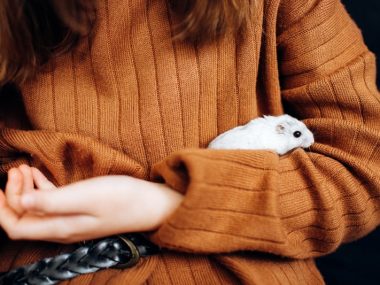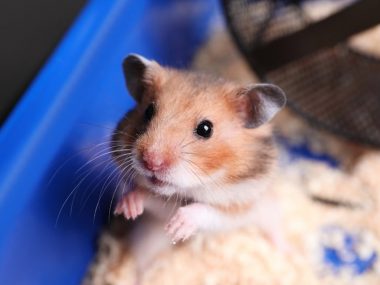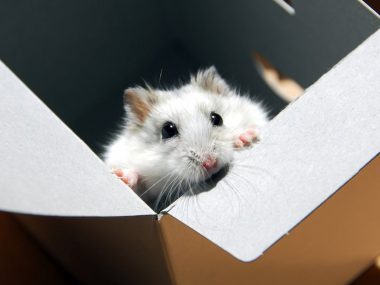Becoming hamster grandparents is a joyful experience. Watching our hammies bring new life into the world is a beautiful sight. But that comes to a halt when you get up the following day to find some of the new babies gone! So why do hamsters eat their babies? Get a detailed answer.
Table of Contents
Why Do Hamsters Eat Their Babies?
We struggle to understand why animals do what they do, especially when it comes to the intentional act of devouring their newborns. The act of cannibalism within a species is disgusting and extremely disturbing to humans because this is not something we do.
It has been ingrained into our brains that newborn animals and their mothers are to be left alone to rest and become acquainted. If we hold newborn puppies and kittens, why not a little baby hamster? Although a hamster may be a domesticated pet, it still has the instinctive wild behavior, which is coded into its genetics. What a maternal hamster does is hardwired into her DNA, and we can’t change it.
There are logical reasons why cannibalism occurs within a litter of new hamster pups. You might be surprised to find what it is!
Hypothesized Reasons Why Hamsters Eat Babies
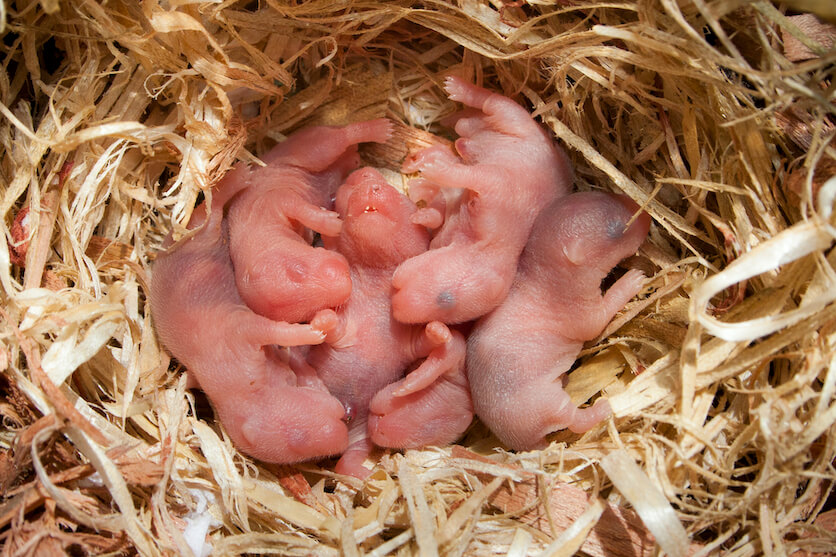
There are numerous reasons purported to cause a mother hamster to eat her babies. Most of which makes sense to us. However, the information being presented by many online sites is leaving out a scientific-backed reason and promoting those that are being redundantly spread.
There are widespread claims as to why a mother hamster cannibalizes her pups:
- Stress (loud noises, people being around, etc.)
- Touching the pups (getting human scent on them)
- Specific species that are more prone to cannibalism
- Having the wrong bedding in the cage
- Having corn in the diet
- Vitamin deficiency
- Having a cagemate
- Keeping the light on in the room
- Too many toys inside the cage
Some of these reasons have some truth to them, while most of the others are just plain bogus. To get to the bottom of “myth-busting” these reasons, we dived into scientific research studies. We ourselves were somewhat surprised to learn that there is one fundamental reason that leads a mother hamster to cull her young.
An Evidence-Based Reason Why Hamsters Eat Their Pups
Several research studies conclude that the main reason female hamsters cannibalize their young is done so as a means for the mother to adjust the size of the litter to her capacity to care for them.
A research study entitled “Pup Cannibalism By The Maternal Golden Hamster” studied hamsters and pups under numerous conditions. The “hypothesized” causes of maternal cannibalism were:
- Disturbance
- Extreme litter size
- Immaturity of the mother
- Poor health conditions of the pups
Each of these “causes” was recreated in a lab multiple times. Concluding evidence indicated the cannibalistic behavior didn’t occur due to handling the pups, bothering the mother, or the mother’s age/sexual maturity. What they discovered was the maternal hamster culls her young as an adaptive response to downsize her litter to match her ability to rear them.
In another study (Ambient temperature affects postnatal litter size reduction in golden hamsters,) researchers discovered a similar cause for the mother killing her pups. However, this study found that ambient temperatures play a vital role in the mother’s ability to provide milk for her young. At temperatures near 86 degrees (F,) the milk production in the mother significantly reduced her lactation performance. As a result, she proceeded to cull enough pups to adjust the number of young to the amount of milk she could produce under the hot conditions.
A third research study (Pup Cannibalism: A Description and Causal Analysis of One Aspect of Maternal Behaviour of the Golden Hamster (Mesocricetus auratus) also mentions the maternal hamster reducing the size of her litter to be proportionally matched to her rearing ability.
So, as you can see, a hamster will do what comes naturally. Although its environment can influence some behaviors, when a mother hamster does what she does, it comes from a place deep within her makeup that we have trouble understanding.
Do Hamsters Eat Their Babies In The Wild?
Whether a hamster is domesticated (pet) or living in the wild, the maternal mother instinctively culls some/all of her pups. There may be times when a litter of pups may have a few sick, underdeveloped newborns or the litter is very large. The mother will do what she has to do to help her cope with the litter. It may not seem right, but it’s natural.
Do Hamsters Eat Their Babies If Humans Touch Them?
We could not find evidence-based data supporting the fact that humans touching baby hamsters caused the mothers to eat them. Handling tiny newborn hamster pups is definitely not a good idea because of how fragile they are. But it won’t prompt the mom to abandon or eat them if you do so by accident.
Why Do Hamsters Put Their Babies In Their Mouth?
Maternal hamsters carry their pups in their mouth to take them to a different area within the burrow or in a cage. It is perfectly normal behavior and does not necessarily mean she is eating them. If the mother feels she or the pups are threatened, she will scoop them up inside her cheeks and move them to a new location.
A Natural Behavior
Although a mother hamster eating her babies is a natural occurrence, we may never get used to it. It can be heartbreaking and very emotional to have this happen if you are raising and breeding hamsters. You can find some comfort in knowing that when and if it happens, it’s probably not anything you’ve done.
